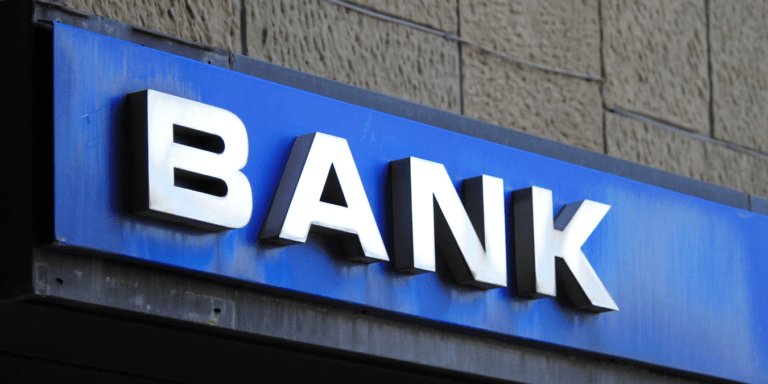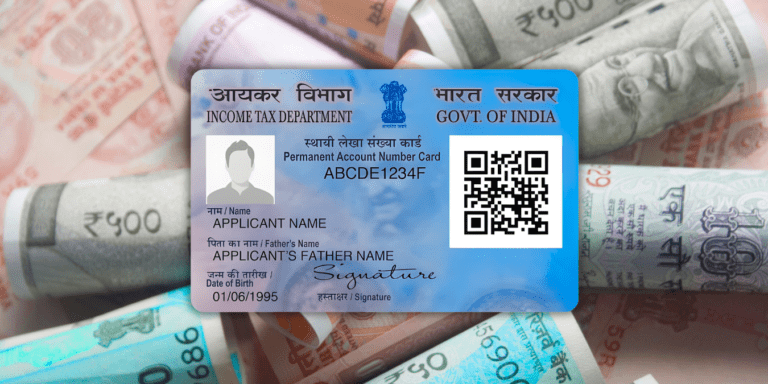
Yes Bank gets major relief as ₹2,209.17 crore tax demand is deleted by rectification order. Learn how this impacts the bank’s financial health, stock performance, and future outlook. Key insights on the tax dispute resolution and what it means for investors.
Yes Bank Ltd. announced on April 24, 2025, that it has successfully resolved a massive income tax demand of ₹2,209.17 crore. The Jurisdictional Assessing Officer (JAO) issued a rectification order, effectively deleting the tax demand related to the Assessment Year (AY) 2019-20. This news has sparked widespread interest among investors, financial analysts, and stakeholders in the Indian banking industry, as it marks a crucial milestone in Yes Bank’s ongoing efforts to stabilize its financial position. In this comprehensive blog post, we delve into the details of this rectification order, its implications for Yes Bank, and what it means for the broader financial ecosystem in India.
Understanding the Yes Bank Tax Demand Issue
Yes Bank, one of India’s leading private-sector banks, faced a substantial tax demand notice of ₹2,209.17 crore, including ₹243.02 crore in interest, for the Assessment Year 2019-20. The demand was issued by the National Faceless Assessment Unit of the Income Tax Department on March 28, 2025, under Section 156 of the Income Tax Act, 1961. The reassessment proceedings were initiated in April 2023, following the original assessment order passed under Section 144 of the Act.
Interestingly, the reassessment order did not introduce any new disallowances or additions to the bank’s reported income. The total income assessed in the original order remained unchanged, leading Yes Bank to argue that the tax demand was “prima facie without any basis.” The bank contested the demand, asserting that no additional tax liability should have been raised given the unchanged income assessment. Yes Bank promptly initiated appeal and rectification proceedings to challenge the order, highlighting errors in the computation sheet that erroneously reflected the ₹2,209.17 crore liability.
On April 24, 2025, the JAO issued a rectification order, confirming the deletion of the entire tax demand. This resolution is a testament to Yes Bank’s proactive approach in addressing regulatory challenges and underscores the importance of robust legal and financial strategies in navigating complex tax disputes.
The Rectification Order: What It Means for Yes Bank
The deletion of the ₹2,209.17 crore tax demand is a major relief for Yes Bank, which has been working to strengthen its financial health following a tumultuous period in recent years. The bank’s ability to resolve this issue without incurring a significant financial burden demonstrates its resilience and strategic foresight. Here are the key implications of the rectification order:
1. Improved Financial Stability
The tax demand, if upheld, could have strained Yes Bank’s balance sheet, potentially impacting its capital adequacy ratios and investor confidence. By securing the deletion of the demand, the bank avoids a substantial cash outflow, allowing it to allocate resources toward growth initiatives, digital transformation, and customer-centric services. As of April 16, 2025, Yes Bank’s market capitalization stood at ₹56,092.51 crore, reflecting a stable market presence despite recent tax-related challenges.
2. Boost to Investor Confidence
The resolution of the tax dispute is likely to bolster investor sentiment, which had been affected by earlier tax demand notices. On April 16, 2025, Yes Bank’s shares rose by 2% to ₹17.87 on the National Stock Exchange (NSE), despite the announcement of additional tax demands totaling ₹536 crore for AY 2016-17. The successful rectification of the ₹2,209.17 crore demand could further stabilize the stock price and attract long-term investors seeking exposure to India’s recovering banking sector.
3. Strengthened Regulatory Compliance
The rectification order highlights Yes Bank’s commitment to regulatory compliance and its ability to navigate complex tax frameworks. By engaging in appeal and rectification proceedings, the bank demonstrated a proactive approach to resolving disputes, which could enhance its reputation among regulators and stakeholders.
Contextualizing Yes Bank’s Tax Challenges
The ₹2,209.17 crore tax demand was not an isolated incident for Yes Bank. In recent weeks, the bank has faced multiple tax-related notices, reflecting heightened scrutiny from India’s tax authorities on financial institutions. Here’s a brief overview of other tax demands faced by Yes Bank in 2025:
- ₹536 Crore Tax Demands for AY 2016-17: On April 15, 2025, Yes Bank received two separate tax demand notices of ₹292.29 crore and ₹244.20 crore for AY 2016-17. These demands were linked to reassessment and rectification processes, with the bank arguing that the interest calculations under Sections 234A and 234B of the Income Tax Act were significantly inflated without justification. Yes Bank plans to file rectification applications and appeals to contest these demands.
- ₹9.75 Crore Disallowance Upheld: On April 22, 2025, the Income Tax Appellate Tribunal (ITAT) upheld a disallowance of ₹9.75 crore under Section 36(1)(va) due to late payments of employees’ PF/ESI contributions. However, a ₹30 crore disallowance under Section 43B was deleted, providing partial relief.
These developments indicate that Yes Bank is navigating a complex tax environment, with multiple reassessments and rectifications underway. The successful deletion of the ₹2,209.17 crore demand sets a positive precedent for resolving the remaining disputes.
Broader Implications for the Indian Banking Sector
The Yes Bank tax dispute resolution has broader implications for India’s banking sector, which has faced increasing regulatory and tax scrutiny in recent years. Here are some key takeaways:
1. Heightened Tax Scrutiny
Indian tax authorities have intensified their focus on financial institutions to ensure compliance with tax laws. This trend is evident not only in Yes Bank’s case but also in tax demands issued to other companies, such as Swiggy (₹158 crore and ₹7.59 crore) and Dabur India (₹110.33 crore) in April 2025. Banks and corporations must invest in robust tax compliance frameworks to mitigate risks associated with reassessments and disallowances.
2. Importance of Rectification Proceedings
The Yes Bank case underscores the critical role of rectification proceedings under Section 154 of the Income Tax Act. These proceedings allow taxpayers to correct errors in tax assessments, ensuring fair and accurate tax liabilities. Other banks facing similar challenges can draw lessons from Yes Bank’s proactive approach to dispute resolution.
3. Impact on Investor Sentiment
Tax disputes can significantly impact stock prices and investor confidence in the banking sector. The resolution of Yes Bank’s ₹2,209.17 crore demand is likely to have a positive ripple effect, encouraging investors to view Indian banks as resilient and capable of managing regulatory challenges.
Yes Bank’s Road Ahead
With the ₹2,209.17 crore tax demand resolved, Yes Bank is well-positioned to focus on its strategic priorities, including:
- Digital Transformation: Yes Bank has been investing heavily in digital banking solutions to enhance customer experience and operational efficiency. The resolution of the tax dispute frees up resources for these initiatives.
- Loan Portfolio Expansion: The bank aims to grow its retail and SME loan portfolios, capitalizing on India’s economic recovery and rising credit demand.
- Capital Raising: Yes Bank may explore capital-raising opportunities to strengthen its balance sheet and support long-term growth.
However, the bank must remain vigilant in addressing the remaining tax demands and ensuring compliance with evolving regulatory requirements. By maintaining transparency and engaging proactively with regulators, Yes Bank can continue to rebuild trust and drive sustainable growth.
Landmark Victory for Yes Bank
The deletion of the ₹2,209.17 crore tax demand is a landmark victory for Yes Bank, reinforcing its financial resilience and commitment to regulatory compliance. The rectification order not only alleviates a significant financial burden but also sends a positive signal to investors and stakeholders in India’s banking sector. As Yes Bank navigates the remaining tax challenges and pursues its growth agenda, the lessons learned from this episode will shape its approach to regulatory and financial management.
For investors, analysts, and banking professionals, the Yes Bank tax dispute resolution highlights the importance of robust legal strategies, proactive engagement with regulators, and a forward-looking approach to financial stability. As India’s banking sector continues to evolve, Yes Bank’s journey serves as a case study in resilience and adaptability.
-

Why Gold Price Hit ₹1,67,000/10g on MCX Today Amid US Strikes on Iran
-

Best Mutual Funds to Hold During Market Volatility
-

SEBI Eyes Boosting Corporate Bond Market with New Indices and Derivatives Alongside RBI
-

Why GIFT Nifty Down 290+ Points Today Amid US-Iran Conflict and Oil Surge
With over 15 years of experience in Banking, investment banking, personal finance, or financial planning, Dkush has a knack for breaking down complex financial concepts into actionable, easy-to-understand advice. A MBA finance and a lifelong learner, Dkush is committed to helping readers achieve financial independence through smart budgeting, investing, and wealth-building strategies, Follow Dailyfinancial.in for practical tips and a roadmap to financial success!






























